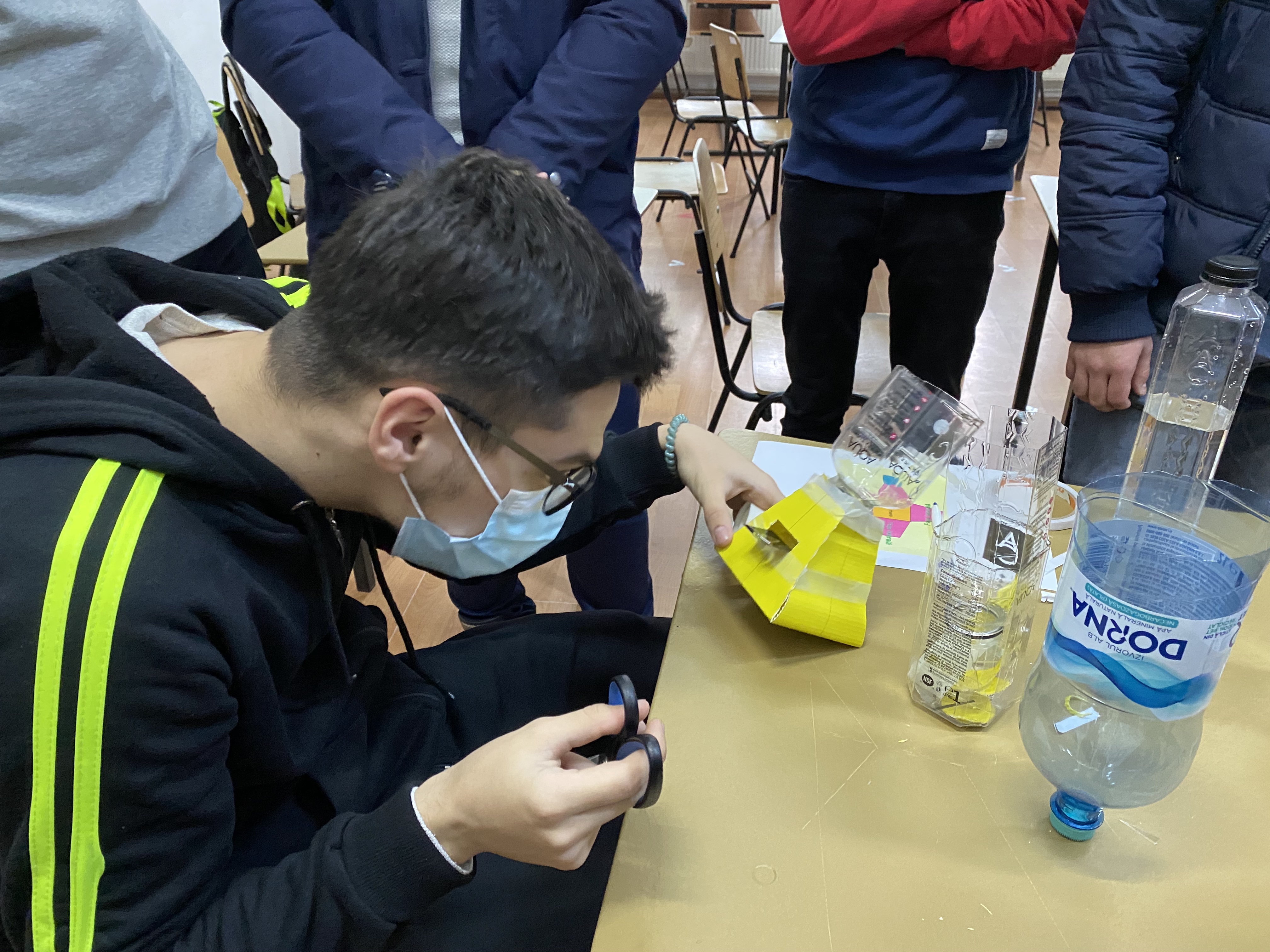
Topic(s) addressed
The project addressed new innovative curricula, educational methods and development of training courses. It also focussed on key competences and basic skills as well as international cooperation, international relations, development and cooperation.
Target group(s)
The initiative involved students aged 15-20 years old, about 300, teachers, local media, companies and NGOs.
Methodologies
The project employed project-based learning to engage students in real-world problem-solving scenarios. Schools established entrepreneurial clubs where students immersed themselves in authentic contexts, fostering intrinsic motivation and deep engagement. They conducted field research, connected with local entrepreneurs, and identified solutions to local problems using available resources. This approach highlighted the close connection between art, math, science, and technology, promoting a STEAM framework for problem-solving.
Innovation environment
Our school has a history of fostering innovation. We've undertaken projects to enhance various curricula, collaborated with international partners to create educational tools, and embraced methodological innovations in education. Our holistic approach values the school, community, and, most importantly, the students, who go on to make significant contributions to various aspects of society.
Teachers’ role
Teachers underwent training to change students' perceptions of Science, Math, and Technology and demonstrate the benefits of these disciplines. We recognized the importance of integrating art and design into the innovation equation, which our EDINN project partners also embraced. This training transformed our teachers into change agents, not only within our schools but also regionally, as they enthusiastically shared their experiences with other educators to create an entrepreneurial ecosystem in the educational community.
Impact and output
The project's impact extends beyond beneficiary institutions by promoting an entrepreneurial mindset and enhancing students' ability to turn ideas into actions. It also contributes to the development of an entrepreneurial ecosystem in partner countries. Participants in the project continue to collaborate with other teachers, sharing tools, methods, and information on innovative teaching practices. This transfer of best practices empowers teachers as change agents, providing them with lesson plans that promote entrepreneurial learning and facilitate the path to change.
Video
- Reference
- 2018-1-RO01-KA229-049245
- Project locations
- Romania
- Project category
- VET schools
- Project year
- 2023
Stakeholders
Coordinators
Colegiul Economic Ion Ghica
- Address
- Romania
Participants
Koulutuskuntayhtymä Tavastia
- Address
- Finland
Agrupamento de Escolas de Castro Verde
- Address
- Portugal
Gymnazium Ladislava Jarose Holesov
- Address
- Czechia
T.S. Franchetti Salviani
- Address
- Italy
